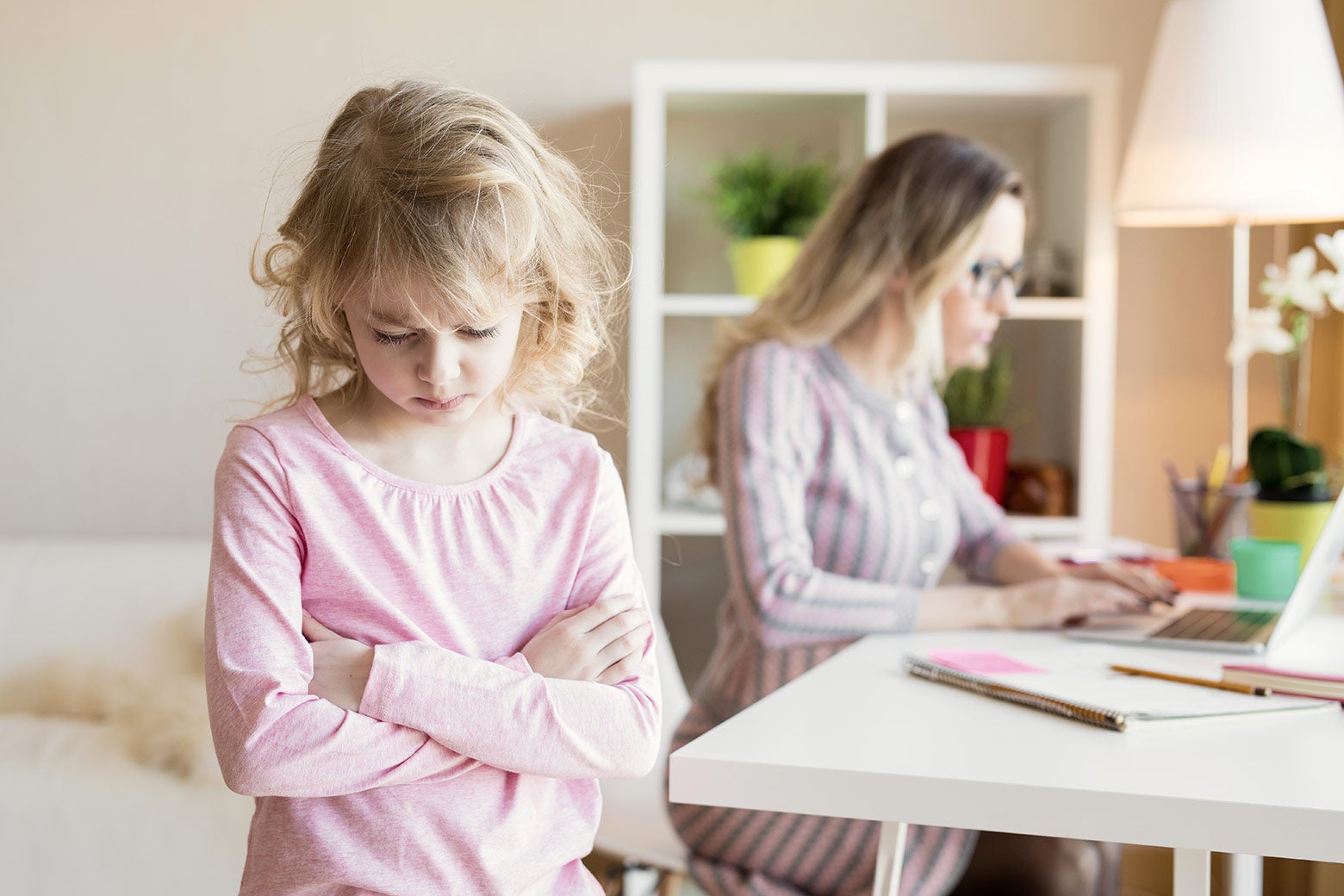Christie Tate has been writing online about her family for more than a decade. Now, her daughter is old enough to notice. After receiving a laptop for Christmas, Tate wrote in a widely shared essay in the Washington Post last week, the fourth-grader quickly marched up to her mom and wondered, “Why are all of these pictures of me on the Internet?” She asked if all the essays and photographs she had found by Googling could be taken down. “I told her that was not possible,” Tate wrote. And furthermore, “I’m not done exploring my motherhood in my writing.”
By her own account, this is not the first time that people Tate knows in real life have begged her to be more empathetic in her online disclosure. On one of her several now-abandoned blogs, she told a remarkably similar story in 2016 about her therapy group. (I’m opting not to include any links to her personal blogs, which seem to use her family’s real names.) She “needed” to tell their stories, she explains, so she wrote—using real names, struggles, and physical descriptions. Under duress after the group’s leader insisted that she circulate the draft, she promised she’d make changes to disguise members’ identities, “but right now it’s my story and I need to tell it unencumbered by pseudonyms and scrambled voices.” She later wrote about her therapy group in the New York Times’ Modern Love column.
In her essay-length defense of her decision to keep writing about parenting—that is, about her daughter’s life—Tate attempts to give this kind of callousness a feminist gloss. She writes that her “creative labor” as a mother is “culturally devalued” and argues that “promising not to write about her anymore would mean shutting down a vital part of myself,” which wouldn’t be good for her or her daughter.
Perhaps her experience with therapy explains why Tate’s self-justifications rely on quasi-therapeutic language. She yearns to find a way to “respect her [daughter’s] boundaries,” she writes, to “negotiate the boundaries” through “the hard work of charting the middle course.” At her lowest, she compares not-blogging to a form of abuse: “Amputating parts of my experience feels as abusive to our relationship as writing about her without any consideration for her feelings and privacy.” (It seems worth noting that Tate does not need to write to survive financially, and she not claim as much: She’s a lawyer.)
It’s clear Tate doesn’t think she has much to apologize for. “I read through some of my old pieces, and none of them seemed embarrassing to me, though [my daughter] might not agree,” she writes. She goes on to mention another piece in the Washington Post, about a time that her daughter’s best friend ended their relationship with a note. In that piece, she defends her daughter’s friend for ending things (needing “space to explore other friendships”) and writes that her daughter’s “way of loving might be overwhelming.” That must have been pretty hurtful for her daughter to read. And on a shallow skim of her various personal blogs, I easily found entries about her kids pooping, their “crusty boogers” (sorry), and her own hurt feelings over various family slights. She is also working on a memoir.
Tate writes that after the laptop revelation, she and her daughter reached a tentative agreement about her future writing. Her daughter has veto power over photos, for one. Tate will discuss what she’s writing before publication and keep personal details to a minimum when they involve her daughter. She is “taking under advisement” her daughter’s request to be referred to in future essays by a pseudonym.
Tate is surely an extreme case when it comes to such narcissistic self-justification, but if she were the only writer treating her family’s inner workings as a commodity, this episode would be not much more than future therapy fodder for her daughter. She is part of an entire generation of writers and Instagrammers and YouTubers who have turned their family’s daily dramas into content. These are the children whose tantrums have gone viral, who have been pranked for LOLs on Jimmy Kimmel’s show, and who have turned into brands as preschoolers. Some of these mothers make serious money.
Now, those children are growing up. Leta Armstrong, the daughter of Heather Armstrong of the pioneering parenting blog Dooce, told Slate last year that she remembers first becoming uncomfortable with one of her mom’s posts in third or fourth grade, around the same age at Tate’s daughter. (She now has veto power over posts that relate to her.) Other parenting writers have already gotten out of the game, for the sake of their children. Darlene Cunha wrote a farewell to mommy blogging last year in response to her twin daughters’ unsettling comfort with their ministardom. Another writer worried that her 6-year-old was becoming “overly aware of her own image.”
And their generation has a different approach to online self-disclosure. As much as young people now live their lives on social media, they’re very self-aware when it comes to sharing pictures and real names online. They use separate private social media accounts with their close friends, and they’ve learned about internet safety in school. A 2016 university study of 249 parent-child pairs found that the children had much more draconian technology instincts than their parents: The children were twice as likely to say that adults shouldn’t post about their kids without permission. “When I had pictured our first serious conversation about how the Internet is forever, I always thought we’d be talking about content posted by her, not me,” Tate wrote, edging up to an epiphany that she never quite reaches: The generation of kids who seem like they’re baring it all online are actually more savvy about self-presentation—and self-protection—than their parents. And in another decade or two, they’ll start writing memoirs of their own.
